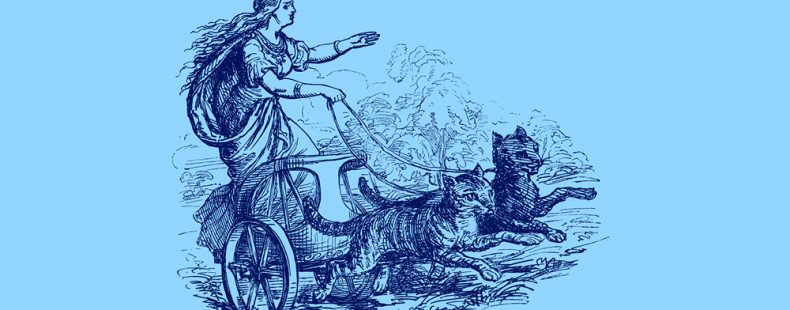In a world that knows too many details about unimportant matters, one would think that our collective expertise could be certain about something as essential as the days of the week. There is, however, a scholarly (and let’s face it, Marvel fan) debate regarding which goddess of love in Norse mythology is the namesake of “Friday.”
Who is Friday named for?
It is said that the name Friday is derived from one of two Norse goddesses, Frigg (or Frigga) or Freyja. Some sources will cite one versus the other, so it can depend where you look. To complicate matters, it may be that Frigg and Freyja were at one point one goddess, or at least both stemmed from the same one. It’s a headache.
Here’s a dollop of the facts we know about both divinities.
Frigg is the queen of Asgard, the capital city of the Norse gods. She is a major goddess, and most myths focus on her roles as a wife and mother. Frigg is also said to be prophetic. Like her husband Odin, Frigg sometimes sits in a high seat called Hliðskjálf. From there she can look into other worlds.
Freyja, which is Old Norse for the “Lady,” has many associations, which include fertility, gold, and death. She rides a chariot that is driven by two cats. When she’s not in her chariot, she’s also known to hitch a ride on a boar she owns called Hildisvíni.
Friday in other languages
Friday is also associated with the planet Venus. In most Romance languages, the word for Friday derives from dies Veneris, which in Latin means “day of Venus.” For example, in Romanian Friday is vineri, and in French it is vendredi.
WATCH: Where Did The Days Of The Week Get Their Names?














